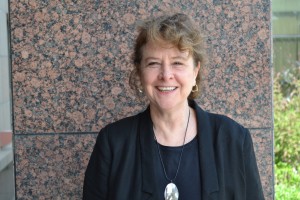Rebecca Schneider
Associate Professor
220 Fernow Hall
(607) 255-2110
Email: RLS11@cornell.edu
Dr. Rebecca Schneider’s program focuses on the sustainable, ecologically-based management of the world’s water resources.
____________________________
Dr. Schneider teaches two courses:
- NTRES 3240 Sustainable Water Resource Management (Spg MWF 9:05-9:55) for undergraduates
- NTRES 6240 Sustainable Water Resources in the Face of Climate Change (Spg) for graduate students
Potential Graduate Students: I currently do not have funding for new graduate students.
Freshwater scarcity is becoming the biggest challenge that society will face in the coming decades. This problem is caused in part by the increasing demands of our rapidly growing human population, by the uneven spatial distribution of rainfall, and by the natural variability or unpredictability in timing and amounts of rainfall which is being exacerbated by climate change. Freshwater scarcity is also caused by a long history of poor management practices. Humans simultaneously use the same limited resource of each river or aquifer for multiple purposes without considering the cumulative impact on the water resource itself. And rarely does management include consideration and protection of the underlying biophysical processes which are critical for sustaining the water resource and its associated ecosystems.
_______________________
Sustainable Waters Lab has investigated many aspects of water resources, including:
1) how groundwater seepage interacts with plants and sediments along the shorelines of lakes, streams, and wetlands;
2) how plant regeneration in riverine floodplains and coastal plain pondshores is tightly tied to the hydrologic flow regime;erosion control and other ecosystem services provided by healthy streamsides, floodplains, and wetlands;
3) the understudied processes of evapotranspiration from wetlands and other landscapes.
Currently, the primary research and extension efforts in the Sustainable Waters Lab are focused on:
1) Re-plumbing our roadside ditch networks to reduce flooding, droughts and water pollution and buffer the impacts of climate change
2) Jump-starting the restoration of semi-arid, degraded and desertified ag/grassland ecosystems.
The findings from each research topic have been translated into a set of recommendations for improved water resource management that is delivered to relevant stakeholders. Cumulatively, these guidelines provide the foundation for an ecologically and watershed-based management approach to sustainable water resources.
NOTE: THIS WEBSITE IS CURRENTLY BEING DEVELOPED. Last update 10 February 2021

